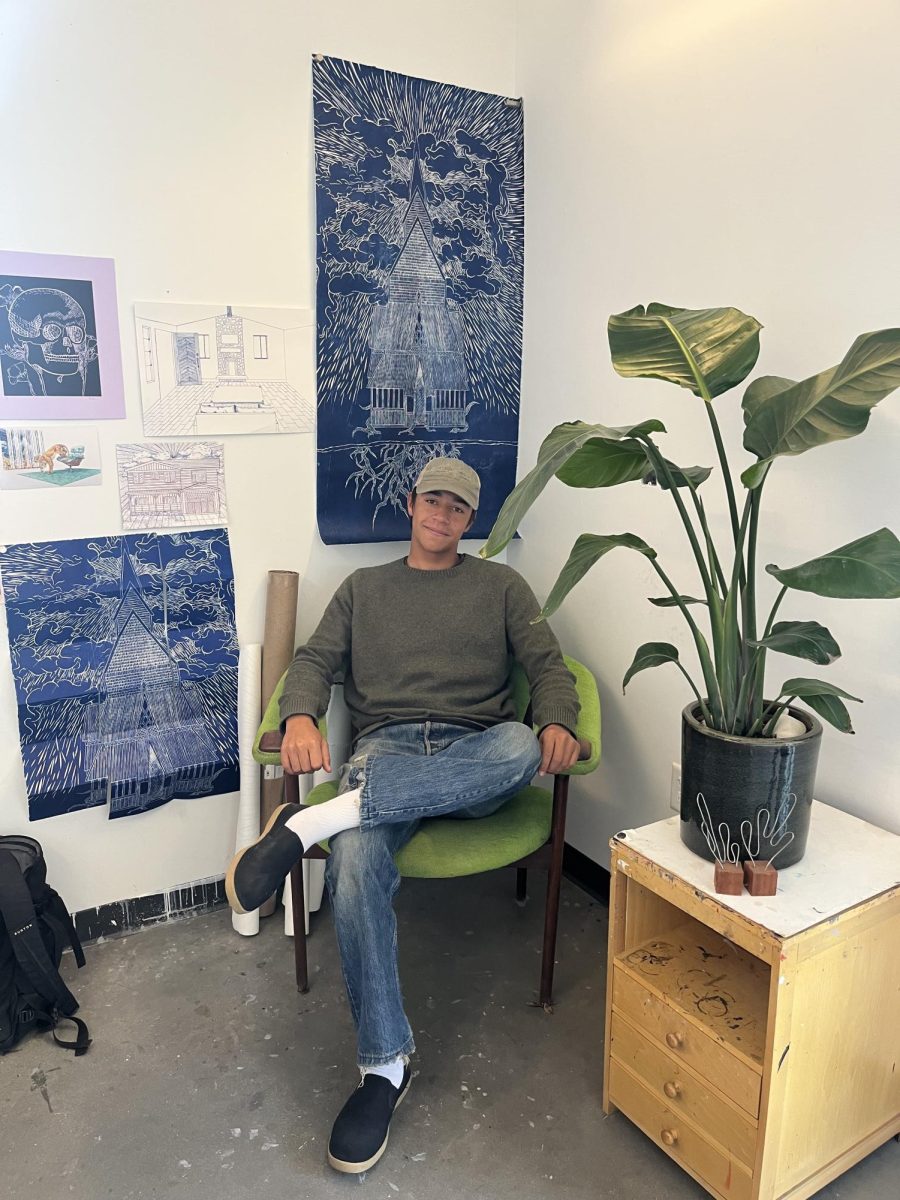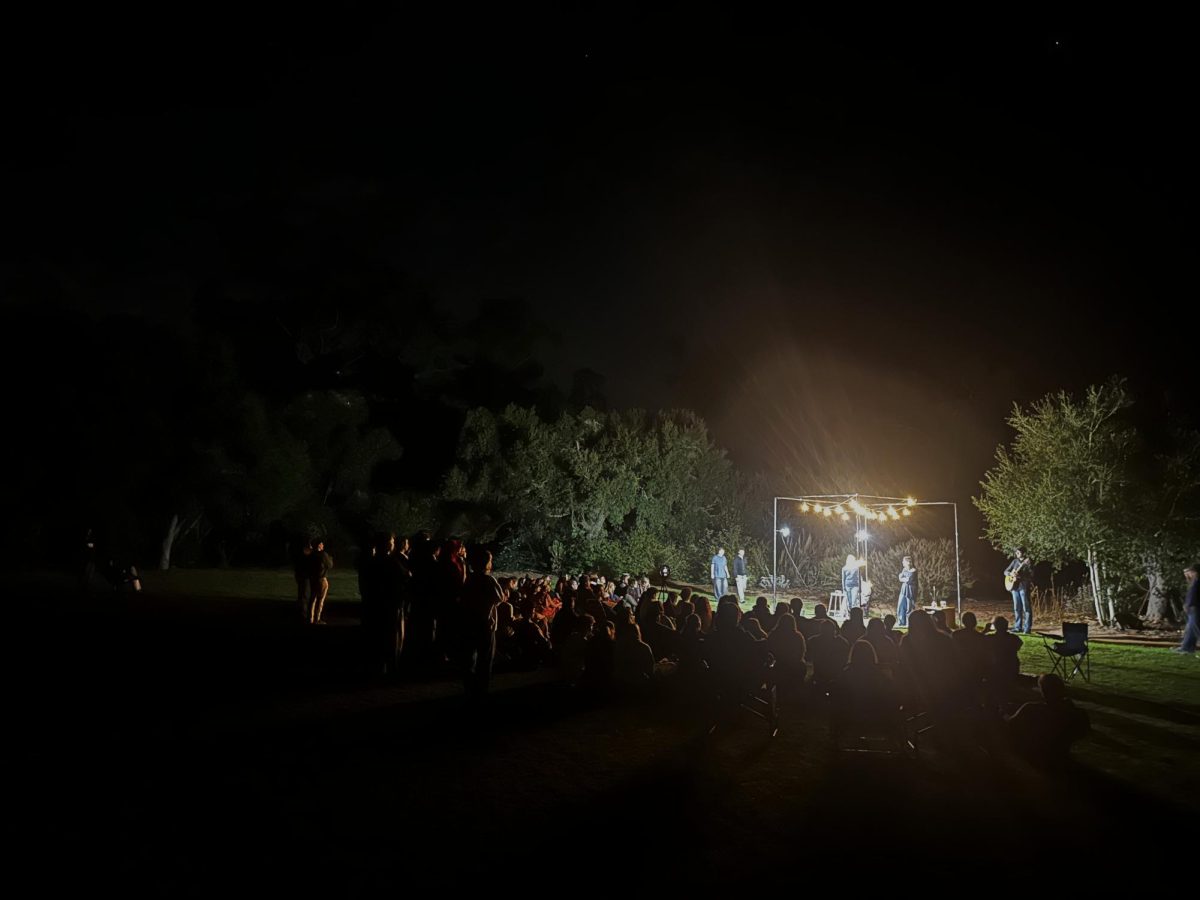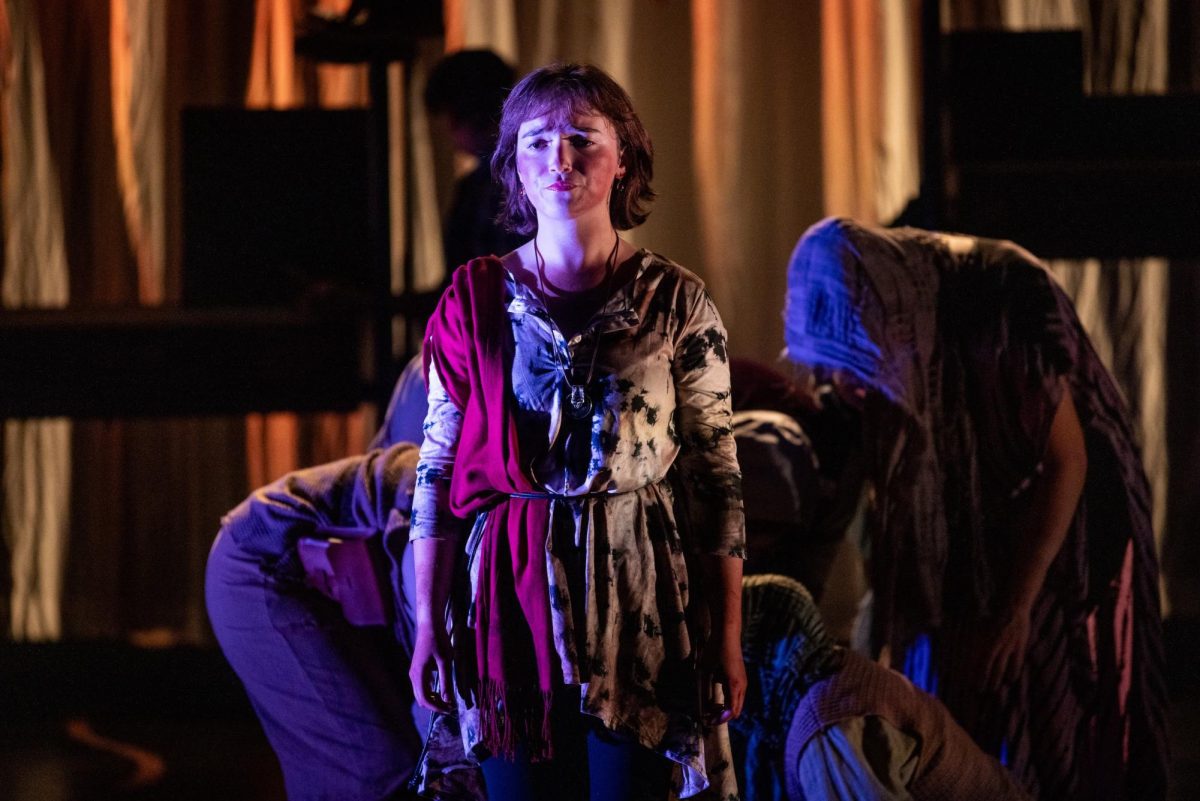Aya Ogawa’s semi-autobiographical “Nosebleed” is part spectacle, part stand-up comedy, part therapy session and part tribute to Ogawa’s father, resulting in a touching, courageous and raw play. Composed of fragments ranging from parodies of “The Bachelorette” to reenactments of Ogawa’s present-day life with her son to questions to the audience, Ogawa steps out of the traditional bounds of storytelling to inspect her strained relationship with her father. Functioning more as a communal experience than a voyeuristic show, the piece is a proxy for audience members to examine their own regrets and unresolved conflicts. Though it may not appeal to audiences searching for more traditional theater fare, Ogawa’s intimate theatrical scrapbook opens old emotional wounds and provides closure.
“Nosebleed,” written and directed by Ogawa, features a cast of five talented actors, four of whom portray Ogawa as a character, while Ogawa plays her son and father. Each actor illuminates different aspects of Ogawa. Kaili Y. Turner grounds the character with maturity and emotional stability, while Ashil Lee’s vibrant energy brings a youthfulness to the character. Drae Campbell’s screwball, dry humor causes laughter throughout the piece, while Saori Tsukada’s endless range allows her to hilariously and convincingly inhabit a variety of side characters. Ogawa herself holds nothing back while playing her bawling son and somehow fills the entire room with the presence of her father simply by sitting motionless back to the audience.
By having herself played by four different actors, Ogawa can achieve what few dramatic performances can do: show inner thoughts in an engaging, organic way. Ogawa has her four selves bicker, argue and comfort each other, reflecting a beautifully divided thought process that feels more realistic to the human mind than a single train of thought via a voiceover or narration.
With such strong acting and fast-paced scene changes, other elements of production are handled with restraint and kept as minimal as possible. Jian Jung’s costume and set design features only what is necessary for the story, the main set piece being a desk, while many elements are described by the actors and left up to the audience’s imagination. Megumi Katayam’s sound design and Jeanette Oi–Suk Yew’s lighting design function subtly throughout the play, entrancing the audience in the last scene.
Ogawa’s unflinching honesty beckons the audience to think honestly about their familial relationships. After an introduction from Ogawa herself, the four other actresses share humorous stories of failure from their own lives. Coupled with Ogawa’s blunt statements, “Raise your hand if you love your father. Raise your hand if you hate your father. I hated my father,” the audience is free to confront the uglier, unresolved aspects of their familial relationships. The play then explores Ogawa’s failure story, that of her estranged relationship with her father, who is now deceased.
The poignant emotional arc is brought to a close when three of the four actors take turns singing karaoke to a bittersweet song, the music growing louder and larger with each take. In a move that resolves the seemingly unresolvable while acting as a posthumous reconciliation to her father, Tsukada emerges as Princess Diana and leads her father through a brightly lit door. The effect is both triumphant and touching, serving as one last hurrah for a deceased man.
Ogawa’s somewhat experimental piece may not be for all audience members, but “Nosebleed” delivers an impressive emotional punch for those willing to brave the foray of messy family relationships.










